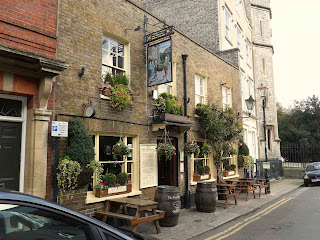I saw this article on msnbc today and wanted to share it with you.
Businesses respond to growing demand for organic trick-or-treat options
By Jennifer Alsever (msnbc.com contributor msnbc.com contributor)
If you are like most Americans, you'll spend about $20 on Halloween candy this year. That is, unless you're like Jennifer Boyd-Mullineaux.
When trick-or-treaters come knocking on her door in Westport, Conn., the 40-year-old mother will drop something different into their bags this year — boxed organic raisins, agave sticks, seashells and herb-seed packets. She doesn't mind spending slightly more on them than she would on candy.
"I just feel like candy is unnecessary," says Boyd-Mullineaux, a physician's assistant who has two
children, ages 7 and 9. "You see the incredible volumes of candy collected — knowing that no one should eat that much — and it just goes into the trash. It just doesn't seem responsible to us."
Boyd-Mullineaux's house may not be that unusual. She's among a small but growing legion of parents across the country who are going green this Halloween — handing out alternative treats, carrying reusable trick-or-treat bags, making their own face paint and decorations and swapping used costumes.
Organic businesses leap on bandwagon The shift has opened a big door for makers of organic products that for years
sat on the sidelines while mainstream companies reaped the rewards of the $5.8 billion Halloween market.
"A lot of moms are frustrated," says Corey Colwell-Lipson, founder of the nonprofit Green Halloween, which offers online tips and helps organize green events around the holiday.
"We try to save money. We try to have a small footprint, eat healthy food," she says. "Here is this holiday. It costs a lot of money. It creates a lot of waste. It's food that I don't want my
kids to touch with a 10-foot pole."
Joining those moms are 50 zoos and aquariums across the country that will hand out mini organic granola bars and fruit leathers — instead of traditional chocolate — to the millions of kids who visit their annual Halloween celebrations. In the past, a large zoo might have given away 150,000 pieces of candy.
Organic food makers have seized the opportunity. Just this year, Annie's Homegrown launched a new line of trick-or-treat-sized organic fruit snacks. Then there's salty-snack purveyor Snyder's of Hanover, which this year came out with Halloween treat bags for its pretzels; Nature's Path, which introduced bite-sized organic crispy rice bars; and LaraBar, which started making mini granola bars — all for Halloween buyers.
Whole Foods, too, dove into the Halloween season with unusual zest after years of letting mass merchandise retailers collect those sales. The chain beefed up Halloween signage at its 270 stores and even partnered with some companies to develop new products.
"Whole Foods went crazy for Halloween in a way they never have," says Maria Emmer-Aanes,
director of marketing at Nature's Path Foods. "I think that people are dying for alternatives."
Nature's Path has already sold out of its gluten-free Halloween bite-sized bars. Now the Canadian company is talking about making a Halloween variety pack for next year.
That demand for healthier alternatives extends to candy as well. Halloween
sales have doubled this year for organic lollipops made by Yummy Earth, a Ridgewood, N.J., candy maker. Four years after founder Rob Wunder created the suckers for his organic-fed toddler, they are sold in 40,000 retail stores, including mainstream outlets like Publix Super Markets and Babies R Us. The lollipops don't use high-fructose corn syrup, preservatives or color dyes.
"We sell over a hundred million lollipops a year," says Wunder, who declined to give sale figures for his 60-employee company. "People are sick of yucky stuff that they can't pronounce in their treats."
The growth shouldn't be surprising. Organic foods and the green movement are both flourishing, despite the
economic downturn. One-third of consumers now buy organic products monthly, driving a $24.9 billion organic food and beverage market.
Offering more than organic treats The green Halloween sales extend beyond treats. San Diego-based EnviroSax recently launched a line of reusable trick-or-treat bags, following success by competitor ChicoBag, which has been making Halloween bags for five years.
ChicoBag holds annual children's art
contests and puts the winning designs on its Halloween bags. The Chico, Calif., company sold out of its $6 bags this year and expects to sell 80,000 of them next year. "Interest keeps multiplying," says Wes McMahon, ChicoBag marketing director.
And while Americans are still expected to spend some $2 billion this year on new costumes, about 40 percent of consumers will simply reuse last year's costume or make their own, according to a survey by the National Retail Federation. Some like Boyd-Mullineaux are organizing free costume swaps, in which people bring a costume and trade it out for another one.
"People are inspired by the idea," says Green Halloween's Colwell-Lipson. "You're
saving money and getting something new to you. And it's green, which is icing on the cake."
























































